Issue 99 : 27 February 2022
Talofa Lava, Kia Orana, Malo E Leilei, Tena Koutou, Hello ...
... and welcome to the latest issue of “For The Love Of The Game”, the official e-zine of the New Zealand Amateur Sport Association Inc., founded in Wellington, New Zealand in 2017.
If you have any feedback on this issue, ideas for future articles, or would like to contact the Editor, please click here. And, you are invited to forward the e-zine to others you know, who may be interested in reading it. An archive of earlier editions of the e-zine can be found here. For those who follow Twitter, you can also follow the Association, @AmateurSportNZ.
If you are interested in applying for membership of the Association, please click here.
Virtual Workshop Reveals Insights From 2021 Survey ...
On Tuesday 15 February, attendees from Sport New Zealand, national sport organisations, regional sport bodies and local clubs, participated in a national workshop based on 2021 National Sport Club Survey insights. While the focus of this workshop was on the Wellington, Manawatu and Whanganui regions, it also provided a snapshot of national survey results.
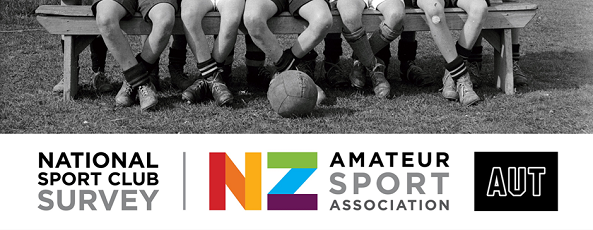
While the Project Team had initially intended that this workshop would be held in-person across these three regions, the red-traffic-light setting meant a more innovative presentation approach. You can download a copy of the workshop slides by clicking here.

2022 is the fifth year of the National Sport Club Survey (NSCS) which is a cornerstone of the Association’s “thought leadership” strategy. The survey contributes to our understanding of the importance of sport clubs to New Zealand’s physical, social and mental well-being.
Amateur Sport Important For Social Cohesion ...
Koi Tū ("The Centre For Informed Futures" at Auckland University) recently published a paper, "Sustaining Aotearoa New Zealand As A Cohesive Society". Recent social disruption in Wellington (and other locations around the country) may be symptomatic of less social cohesion than was the case pre-COVID.

In the paper, Sir Peter Gluckman (as principal author) identifies five characteristics as essential for social cohesion: “belonging”, (being part of the community); “participation”, (involvement in community activities); “inclusion”, (equity of opportunities and outcomes); “recognition”, (valuing diversity and respecting differences); and “legitimacy”, (confidence in public institutions).

Amateur sport (through community sport clubs) offers all of the above. As we have suggested since the Association was first formed, the social dividend which arises from vibrant community sport clubs has always bound us together as a nation. Looking ahead from where we are today, amateur sport, provided by volunteers, through community clubs should be considered a key means by which society maintains its cohesiveness.
You can download Koi Tū’s paper, here.
30% Of School Sports New Zealand Events Cancelled ...
Of the 56 scheduled events on the School Sport New Zealand calendar up to and including 1 May 2022, 30% (including the New Zealand Dragon Boating, Futsal, Softball and Waka Ama championships) have already been cancelled owing the current red-traffic-light COVID settings in place across the entire country.
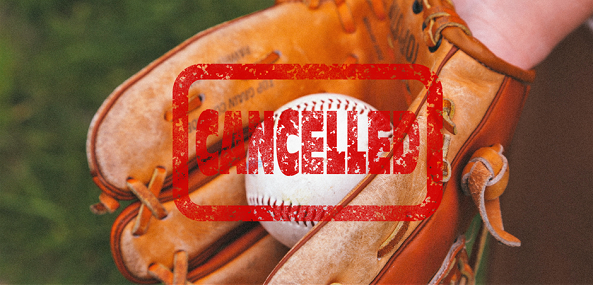
10% of events are definitely going ahead, with 60% having a “pending” status “awaiting further guidance from the event provider as to the viability of an event” under the red-traffic-light setting and/or Health and Safety documentation. You can read more here.
Meanwhile, Restrictions Are Lifted For Non-Vaccinated Youth ...
On Friday 25 February, Covid-19 Response and Education Minister Chris Hipkins said that unvaccinated children and teenagers can participate in school sport and extracurricular activities, stating that if a student is “participating in a school-organised activity, the vaccine pass, the vaccine requirement will not apply.”

However, it appears that the change in policy does not apply when youth participate in club sport. It has been pointed out that school sport and club sport often cross over and sometimes the venues where school sport takes place have their own vaccine mandates. Further clarification is being sought on how to apply the revised policy in a practical way.
How To Manage A Modern Club ...
ENGSO is the European Sports NGO and the leading voice for voluntary-based grassroots sport in Europe. ENGSO has recently released a new online course “How To Manage A Modern Club”. Nine project partners from eight European countries (including 125 sport clubs) contributed to the development of course over a three year period. The course is intended to support sports clubs to initiate new, innovative solutions in managing their organisations.
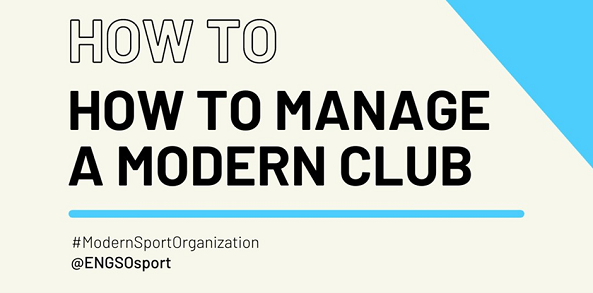
The course has five modules: innovation strategy; management, economy and funding; volunteers; offers, activities, facilities and availability; and external and internal communications. The course forms part of ENGSO’s CHAMP (Clubs for Health-enhancement, Activation, Modernisation and Participation) strategy.
You can access the on-line course, by clicking here.
“Gentle Giant” Remembered ...
A new book published by Nelson’s Russell King (son of 1934-38 West Coast All Black Ronald Russell "Ron" King), tells the story of the “Jubilee All Blacks”, (so-called as they visited Great Britain in 1935 in the Silver Jubilee year of King George V).
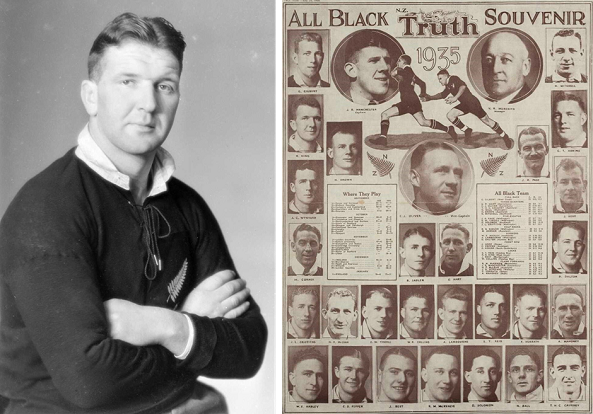
The book is a memoir of the trip as told by Ron who departed Hokitika on a five-month adventure in August 1935 to the northern hemisphere, in a tour which traversed England, Scotland, Ireland and Wales. King was Captain of the All Blacks and West Coast side, going on to become a selector and coach following his playing days. You can read more about the book, (and its author) by clicking here.
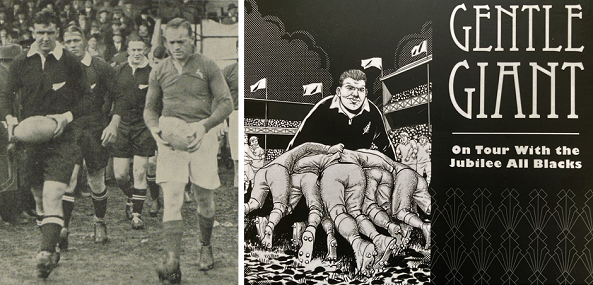
New Zealand's rugby community was saddened by the news this week that both Va'aiga Lealuga Tuigamala MNZM and Joeli Vidiri, had passed away. Both men were great contributors to the game of rugby and to the well-being of their respective communities.
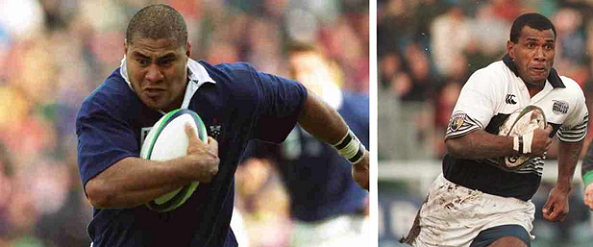
(Tuigamala (left) and Vidiri (right) in full flight)
Barriers to Asian Participation in Community Sport Leadership ...
With funding support from the Ministry of Ethnic Communities, Association member Sport Waitakere recently completed an in-depth investigation into the low participation of Asians in formal leadership roles within community sport. Sport Waitakere found that of the 151 entities in the sport and recreation sector in the West Auckland area, fewer than 10% had Asians in formal leadership roles, (governance, executives, committees etc.).
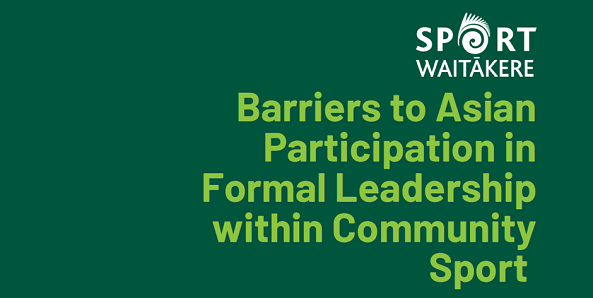
Among the findings of the study, seven key barriers to participation were identified: lack of time; cultural and language barriers; lack of effective and efficient communication; an observation that formal leaders are a regular group of people; racism and discrimination; lack of essential knowledge; and a perception of unsuitability.
Among the recommendations made by the report to remove these barriers were ideas to: provide further information about the tasks and responsibilities of formal leadership roles; provide mentors; use alternative communication methods; Identify and promote professional development opportunities; and to value what diversity brings. You can download a copy of the report by clicking here and read media coverage of the report by clicking here.
From The Archives ...
PEOPLE IN THE PLAY
PRESS, VOLUME XCIV, ISSUE 28074, 15 SEPTEMBER 1956, PAGE 5
“One of New Zealand’s most versatile sportswomen Mrs Madie McKenzie died suddenly last week. Mrs McKenzie, better known as Madie Coldham, represented Auckland at both hockey and cricket for many years. She toured Australia with the New Zealand cricket team in 1947.”
Madeline (Madie) Dorothy Coldham was born in 1923, the daughter of George Stewart and Hilda Dorothy (nee Bicker) Coldham of 4 Tawera Road in Greenlane, Auckland.
George was the head of the French department at Mount Albert Grammar School. Hilda was also a schoolteacher. After attending Cornwall Park School and Epsom Girls Grammar School, Madie followed in her parents’ footsteps also becoming a schoolteacher, commencing study at the Auckland Training College in 1941. In February 1944 she was appointed by the Auckland Education Board to Mangatawhiri Valley School near Pokeno, becoming the infant mistress.

(Madie Coldham (circled) representing Auckland against Canterbury in 1946)
While studying, Madie initially played hockey for the Auckland Training College club, then for the College Old Girls club in the Auckland Ladies’ Hockey Association (ALHA) competitions. In 1943 she was first selected for the Auckland Women’s Hockey team as a centre-half. She was a member of the winning team (and sole goal scorer) for Auckland in the 1946 New Zealand championships. Her mother was a hockey umpire and her brother Richard was also an Auckland representative in the sport. Over a decade earlier (in 1931), the ALHA decided to enter two teams in the competition of the Auckland Girls’ Cricket Association and Madie became a cricketer for the ALHA side, which by the 1940’s had become part of the Auckland Women’s Cricket Association, (formed in 1934).
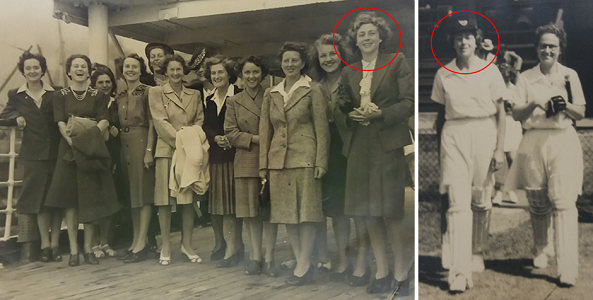
(On the way to Australia (left) and entering the pitch with Billie Fulford (right) in 1947)
In March 1947, Coldham was selected as a member of the New Zealand women’s cricket team which toured Australia for a month. During the tour, the team travelled more than 8,000 kilometres, playing matches at Sydney, Bathurst Park and Brisbane among other locations.
In the opening match of the tour against New South Wales, Madie scored 56 with the bat and together with Joyce Clothier (later Powell) put on 100 runs in 104 minutes. In the match against Goulburn, Coldham retired on a score of 114.
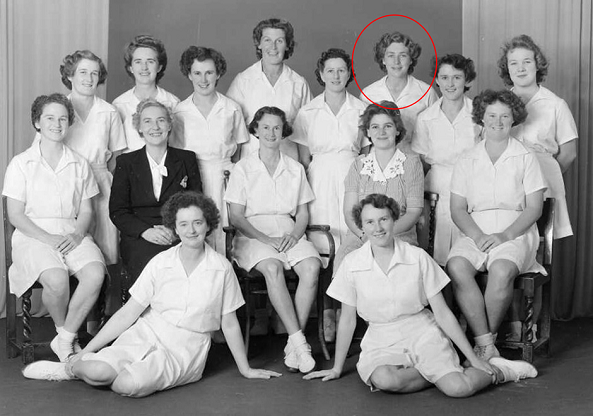
(The New Zealand women’s cricket team in 1946, with Madeline Coldham, circled)
Madie married Pokeno farmer, John Bentley McKenzie in the late 1940’s. with whom she had four sons and a daughter. Madie McKenzie died suddenly at Pukekohe on 30 August 1956 aged 33 years. She is buried in the Pokeno Public Cemetery.
The Final Word ...
“In the dust of defeat as well as the laurels of victory there is a glory to be found if one has done his best.”
Eric Liddell, (1902-1945)